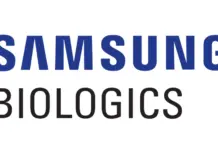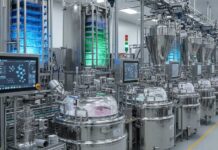A phase 1 clinical trial for the first treatment to reset the immune system of multiple sclerosis (MS) patients showed the therapy was safe and dramatically reduced patients’ immune systems’ reactivity to myelin by 50 to 75 percent, according to new Northwestern Medicine research.
In MS, the immune system attacks and destroys myelin, the insulating layer that forms around nerves in the spinal cord, brain and optic nerve. When the insulation is destroyed, electrical signals can’t be effectively conducted, resulting in symptoms that range from mild limb numbness to paralysis or blindness.
“The therapy stops autoimmune responses that are already activated and prevents the activation of new autoimmune cells,” said Stephen Miller, the Judy Gugenheim Research Professor of Microbiology-Immunology at Northwestern University Feinberg School of Medicine. “Our approach leaves the function of the normal immune system intact. That’s the holy grail.”
Miller is the co-senior author of a paper on the study, which will be published June 5 in the journal Science Translational Medicine. The study is a collaboration between Northwestern’s Feinberg School, University Hospital Zurich in Switzerland and University Medical Center Hamburg-Eppendorf in Germany.
The human trial is the translation of more than 30 years of preclinical research in Miller’s lab.
In the trial, the MS patients’ own specially processed white blood cells were used to stealthily deliver billions of myelin antigens into their bodies so their immune systems would recognize them as harmless and develop tolerance to them.
Current therapies for MS suppress the entire immune system, making patients more susceptible to everyday infections and higher rates of cancer.
While the trial’s nine patients – who were treated in Hamburg, Germany – were too few to statistically determine the treatment’s ability to prevent the progression of MS, the study did show patients who received the highest dose of white blood cells had the greatest reduction in myelin reactivity.
The primary aim of the study was to demonstrate the treatment’s safety and tolerability. It showed the intravenous injection of up to 3 billion white blood cells with myelin antigens caused no adverse affects in MS patients. Most importantly, it did not reactivate the patients’ disease and did not affect their healthy immunity to real pathogens.
As part of the study, researchers tested patients’ immunity to tetanus because all had received tetanus shots in their lifetime. One month after the treatment, their immune responses to tetanus remained strong, showing the treatment’s immune effect was specific only to myelin.
The human safety study sets the stage for a phase 2 trial to see if the new treatment can prevent the progression of MS in humans. Scientists are currently trying to raise $1.5 million to launch the trial, which has already been approved in Switzerland. Miller’s preclinical research demonstrated the treatment stopped the progression of relapsing-remitting MS in mice.
“In the phase 2 trial we want to treat patients as early as possible in the disease before they have paralysis due to myelin damage.” Miller said. “Once the myelin is destroyed, it’s hard to repair that.”
In the trial, patients’ white blood cells were filtered out, specially processed and coupled with myelin antigens by a complex GMP manufacturing process developed by the study co-senior authors, Roland Martin, Mireia Sospedra, and Andreas Lutterotti and their team at the University Medical Center Hamburg-Eppendorf. Then billions of these dead cells secretly carrying the myelin antigens were injected intravenously into the patients. The cells entered the spleen, which filters the blood and helps the body dispose of aging and dying blood cells. During this process, the immune cells start to recognize myelin as a harmless and immune tolerance quickly develops. This was confirmed in the patients by immune assays developed and carried out by the research team in Hamburg.
This therapy, with further testing, may be useful for treating not only MS but also a host of other autoimmune and allergic diseases simply by switching the antigens attached to the cells. Previously published preclinical research by Miller showed the therapy’s effectiveness for type 1 diabetes and airway allergy (asthma) and peanut allergy.
The MS human trial relates directly to Miller’s recently published research in mice in which he used nanoparticles – rather than a patient’s white blood cells – to deliver the myelin antigen. Using a patient’s white blood cells is a costly and labor-intensive procedure. Miller’s study showed the nanoparticles, which are potentially cheaper and more accessible to a general population, could be as effective as the white blood cells as delivery vehicles. This nanoparticle technology has been licensed to Cour Pharmaceutical Development Company and is in preclinical development.
Miller’s research represents several pillars of Northwestern’s Strategic Plan by discovering new ways to treat disease in the biomedical sciences and translating those discoveries into ideas and products that make the world a better place for everyone.




























